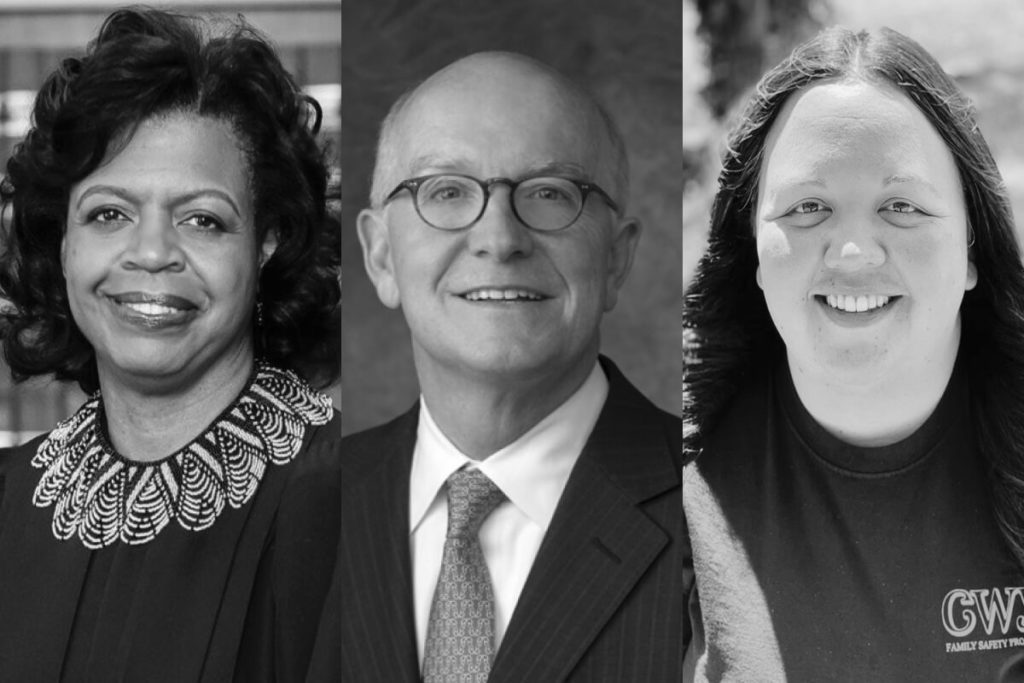Three University of Tennessee College of Law alumni were recently honored at a university gala celebrating 225 years of Volunteers lighting the way for others.
The Alumni Awards Gala recognized those who have become achievers in their fields and dedicated their time and service to their alma mater.
Among those honored were Cheri Beasley (’91), chief justice of the Supreme Court of North Carolina and the first African American woman to serve in that role. Beasley was given the Distinguished Alumna Award.
“I learned a lot of things at the University of Tennessee Law School because I had great professors and wonderful classmates—but I specifically learned resilience,” Beasley said.
Beasley has more than 20 years of judicial experience, having served as a district court judge and as a judge on the North Carolina Court of Appeals prior to beginning her tenure on the Supreme Court. At the time of her appointment as an associate justice of the Supreme Court, she was only the sixth woman and only the second African American woman to ever serve on the court.
J. Reginald Hill (’80), chief compliance officer for LifePoint Hospitals, was recognized with the Alumni Service Award.
Hill’s responsibilities include overseeing the ethics and compliance department for the company and compliance initiatives for the nearly 60 hospitals it operates across 20 states.
Hill began his career as a judicial clerk for Judge Robert L. Taylor of the Eastern District of Tennessee in Knoxville and soon became an attorney at Waller Lansden Dortch & Davis in Nashville. He worked his way to partner and became a member of the firm’s executive committee. He served at the firm for 30 years until 2013 when he accepted his current position at LifePoint.
The Alumni Promise Award was given to Barbara “Sunshine” Parker (’14), director of human services in the Division of Public Health and Human Services for the Eastern Band of Cherokee Indians.
In her work with the Eastern Band of Cherokee Indians, Parker drafted the Children’s Code of Ordinance and assisted with its passage into tribal law, ensuring a safer environment for Cherokee children. She also led the creation of a multiprogram human services department that now employs 70 social service professionals.
During her master’s program, Parker worked as a community organizer at Legal Aid of East Tennessee, where she assisted community organizations in development, planning, and grant funding. She spent five years working at Knoxville Community Connections, frequently advising attorneys arguing TennCare appeal cases.
